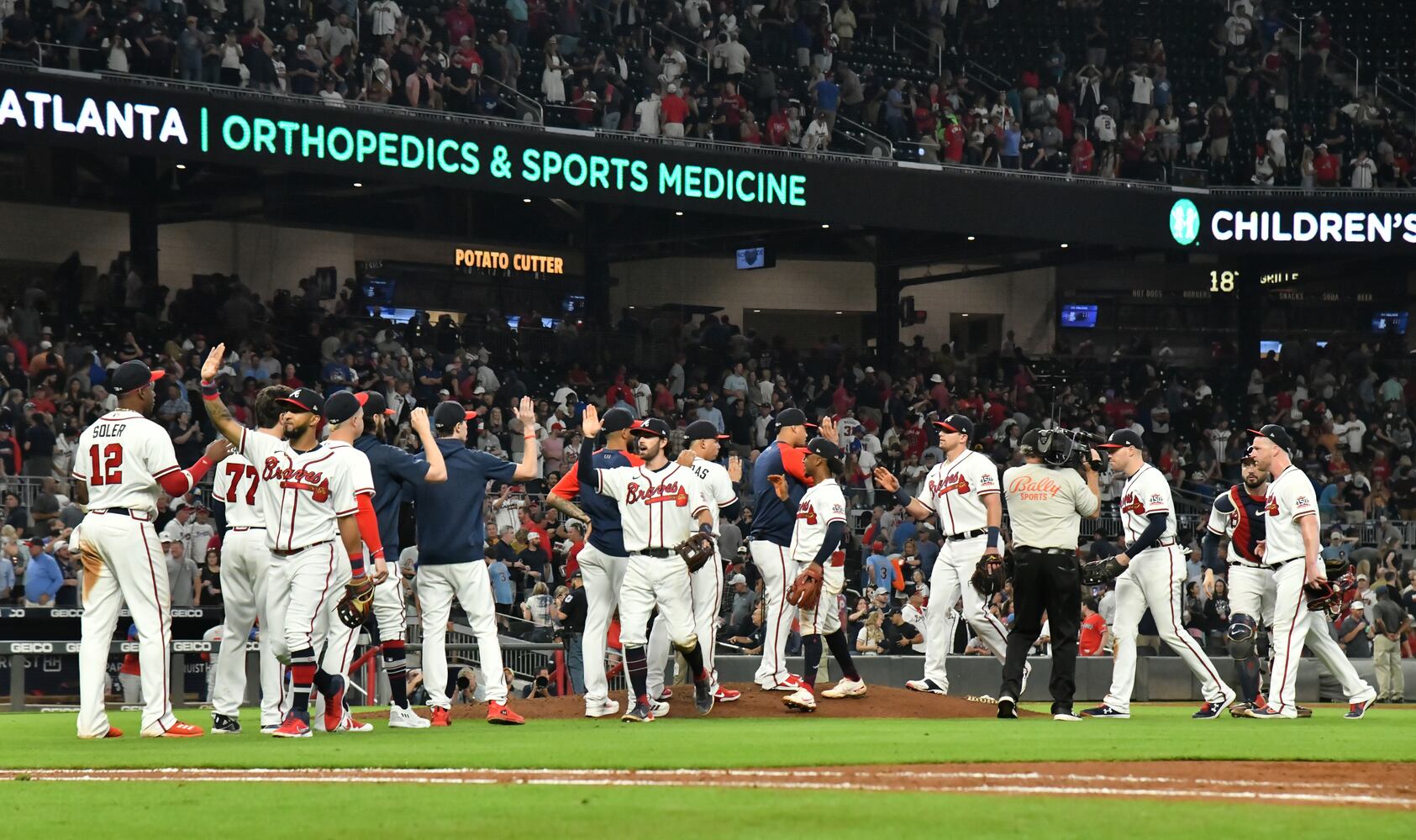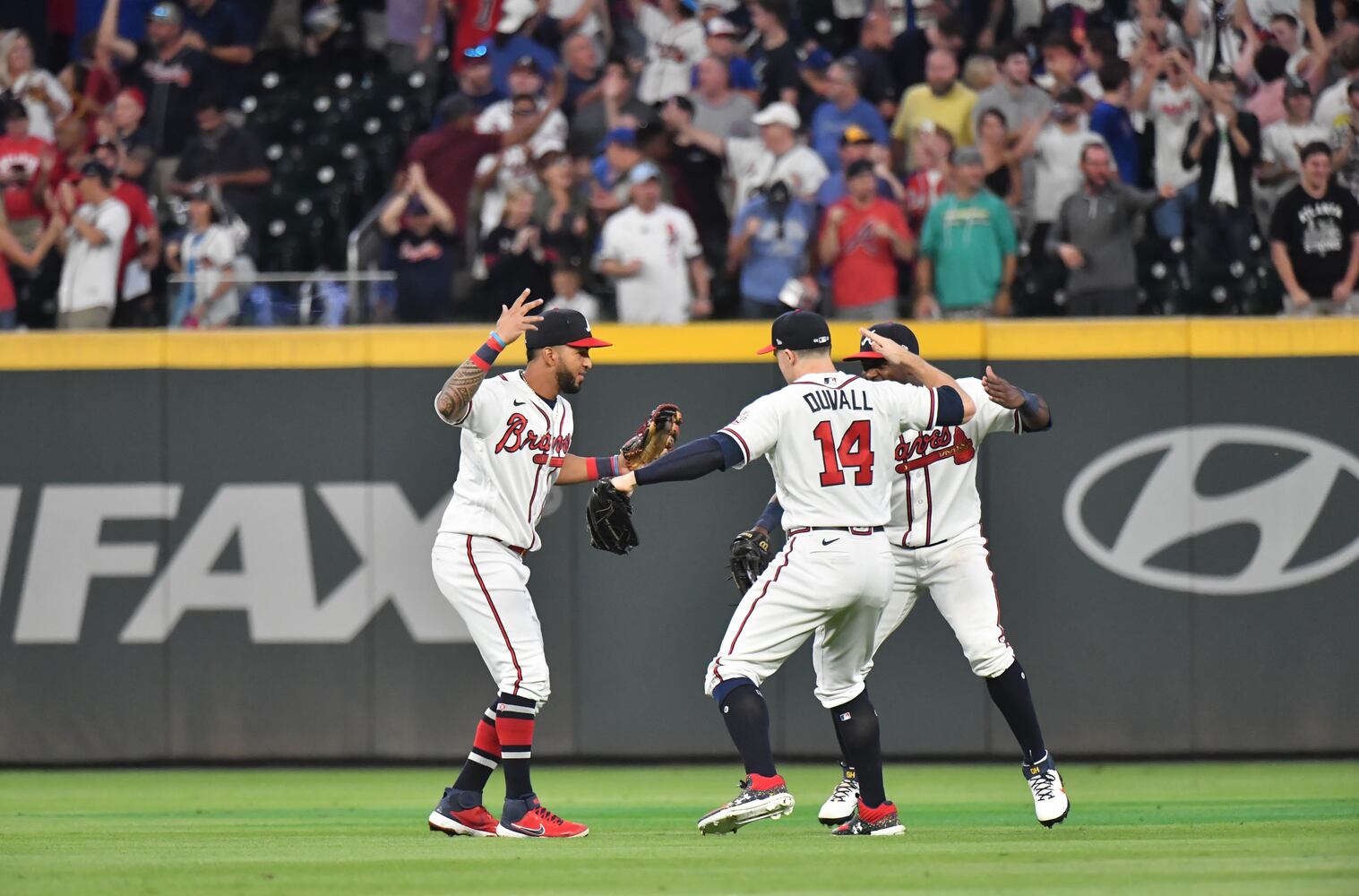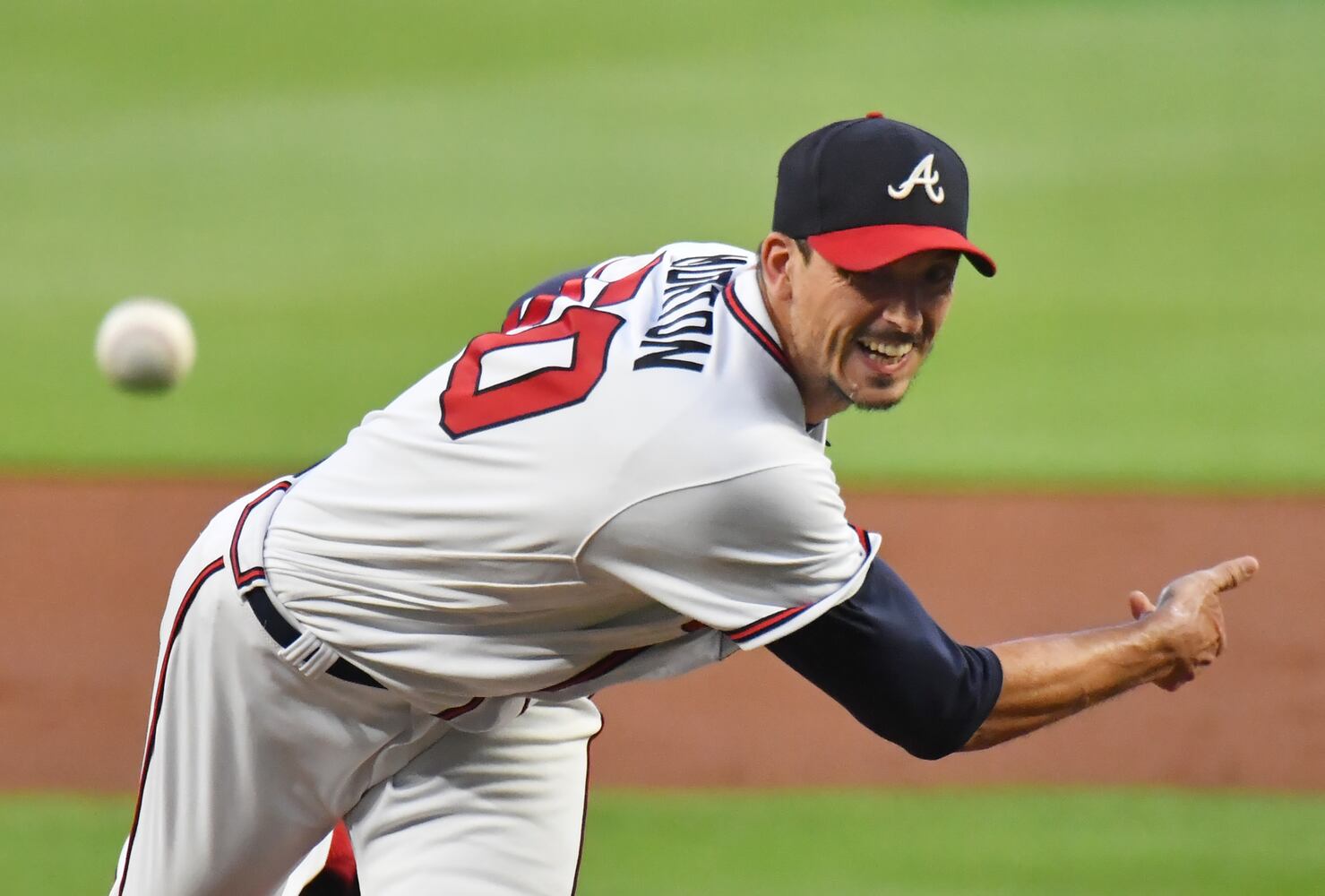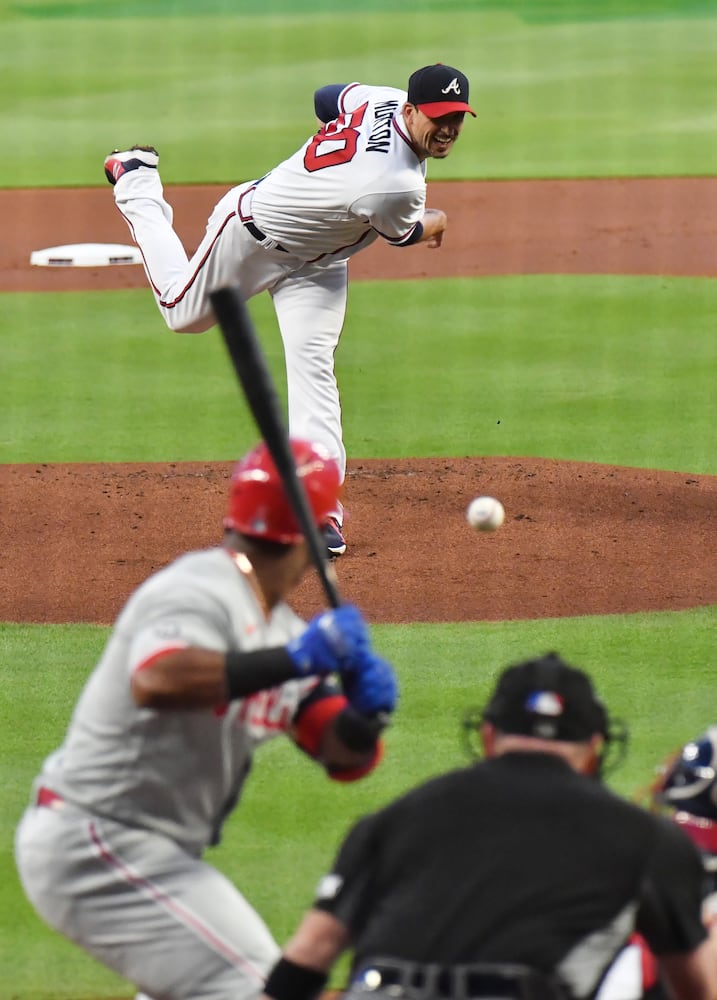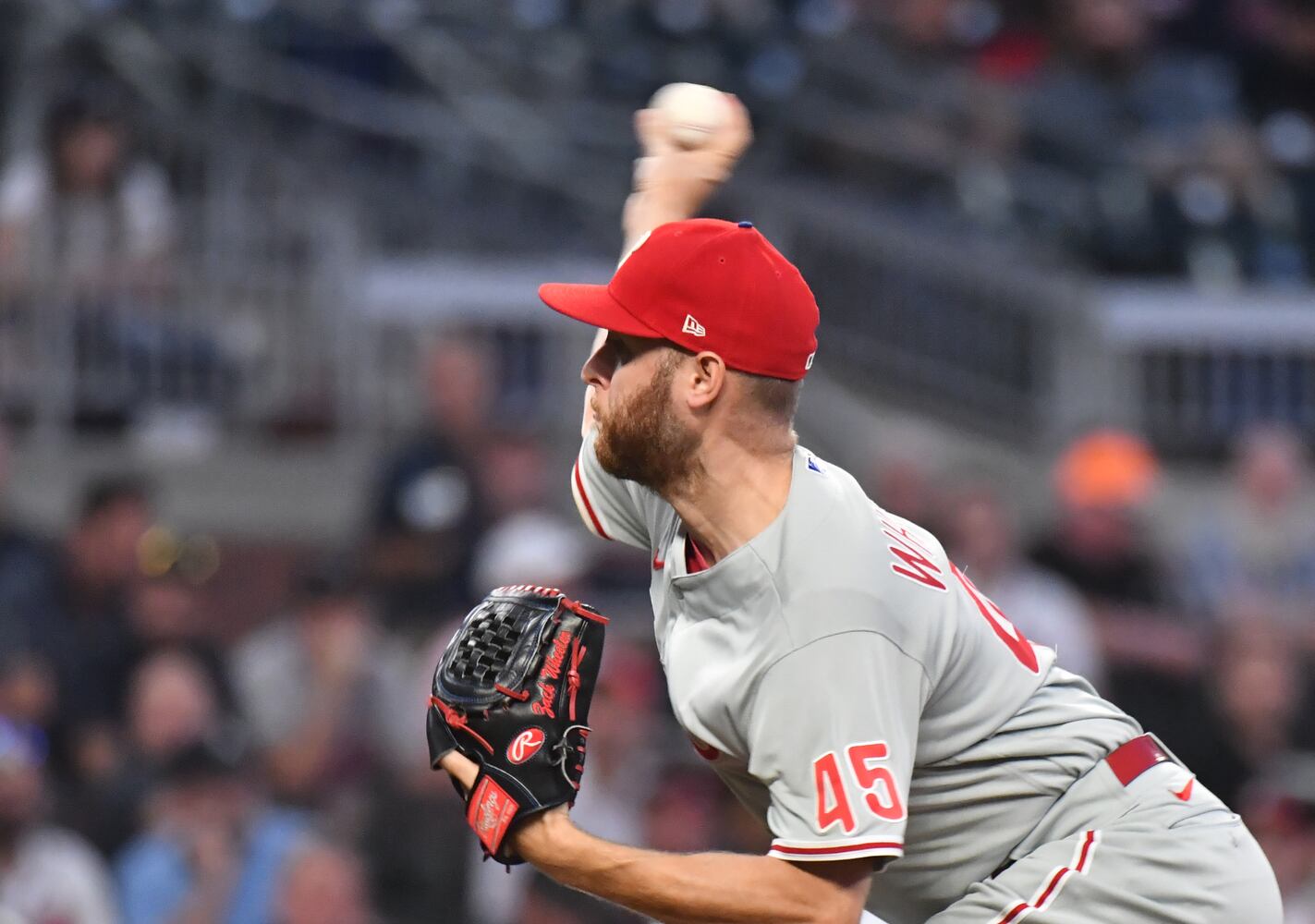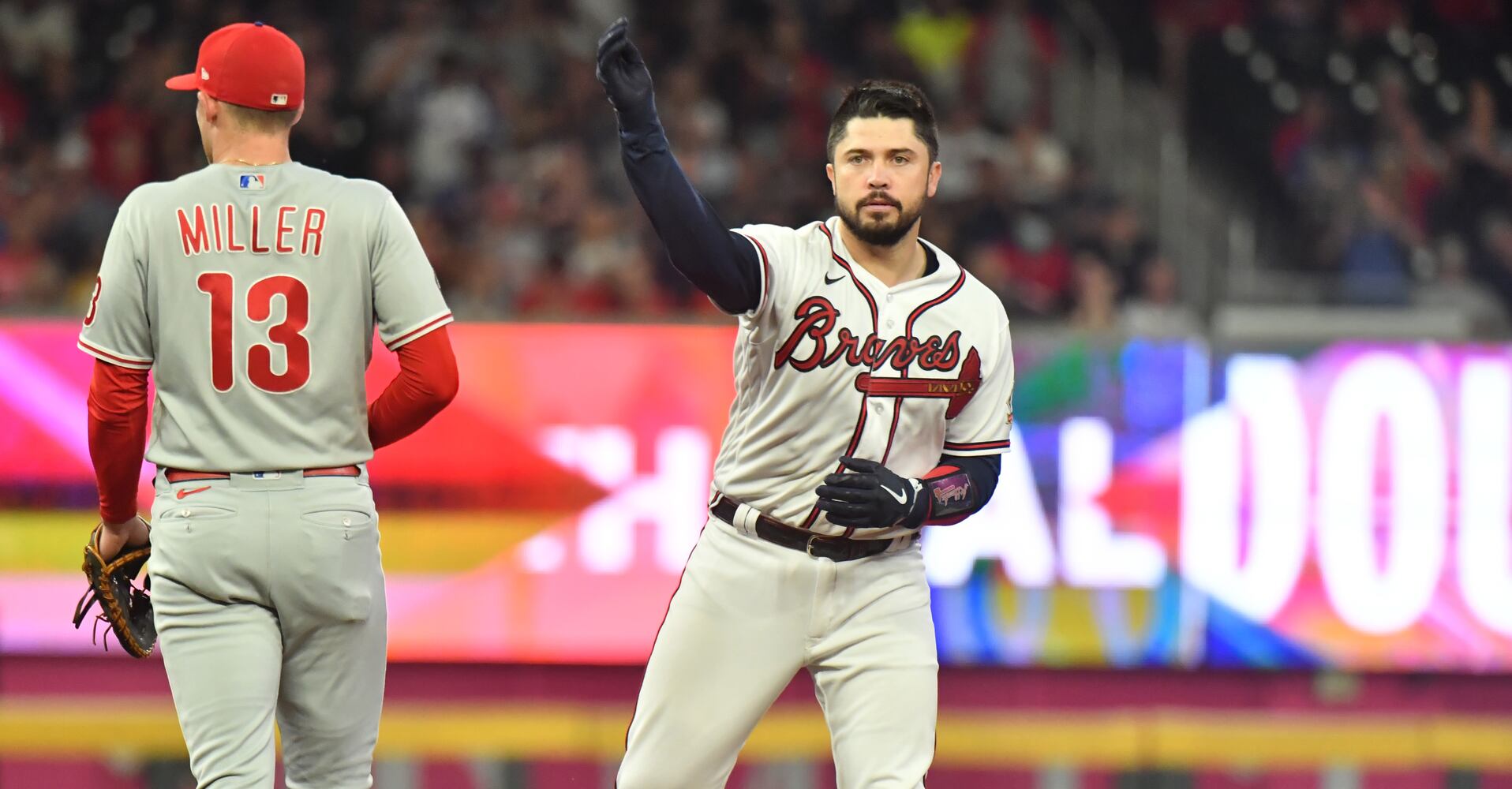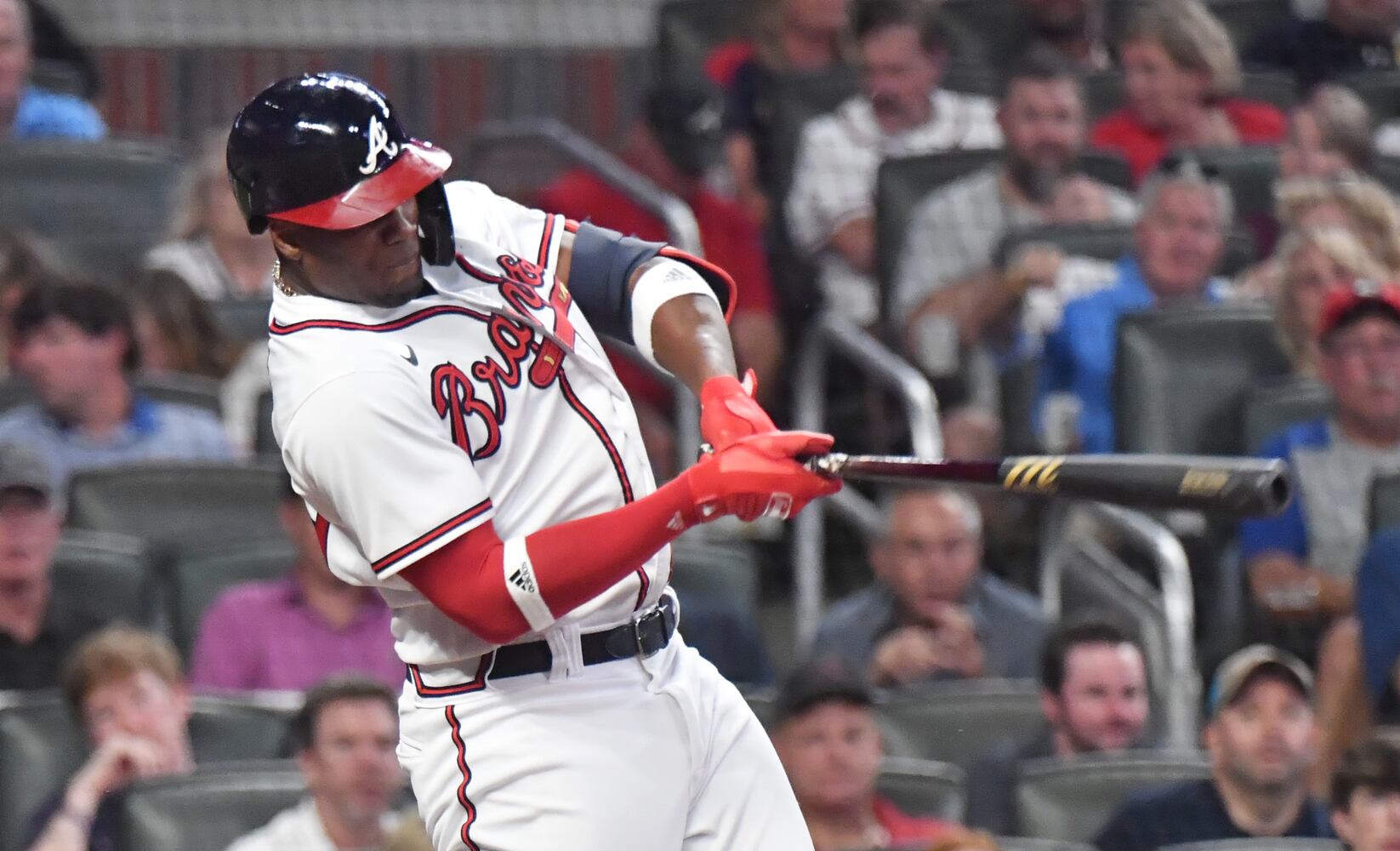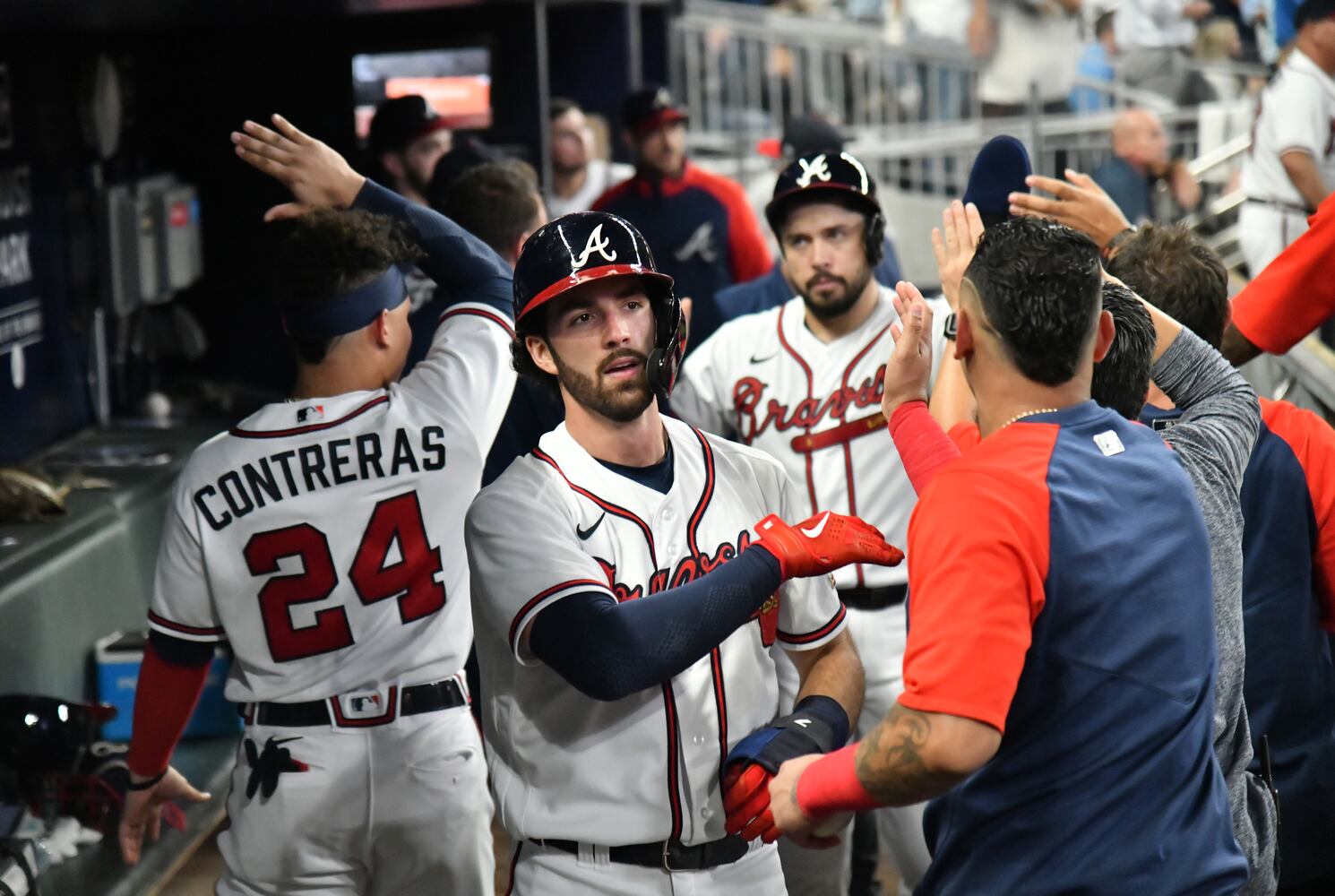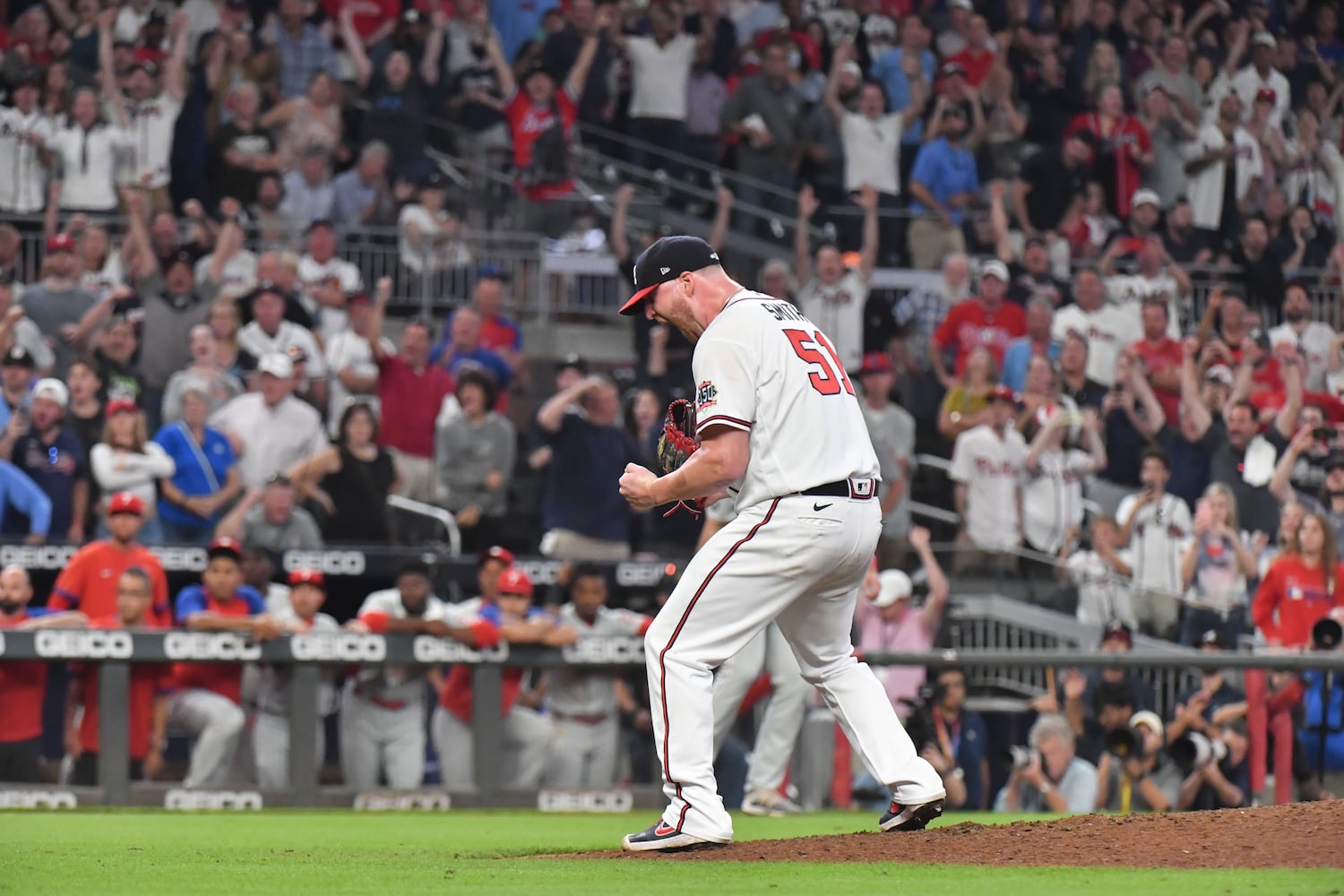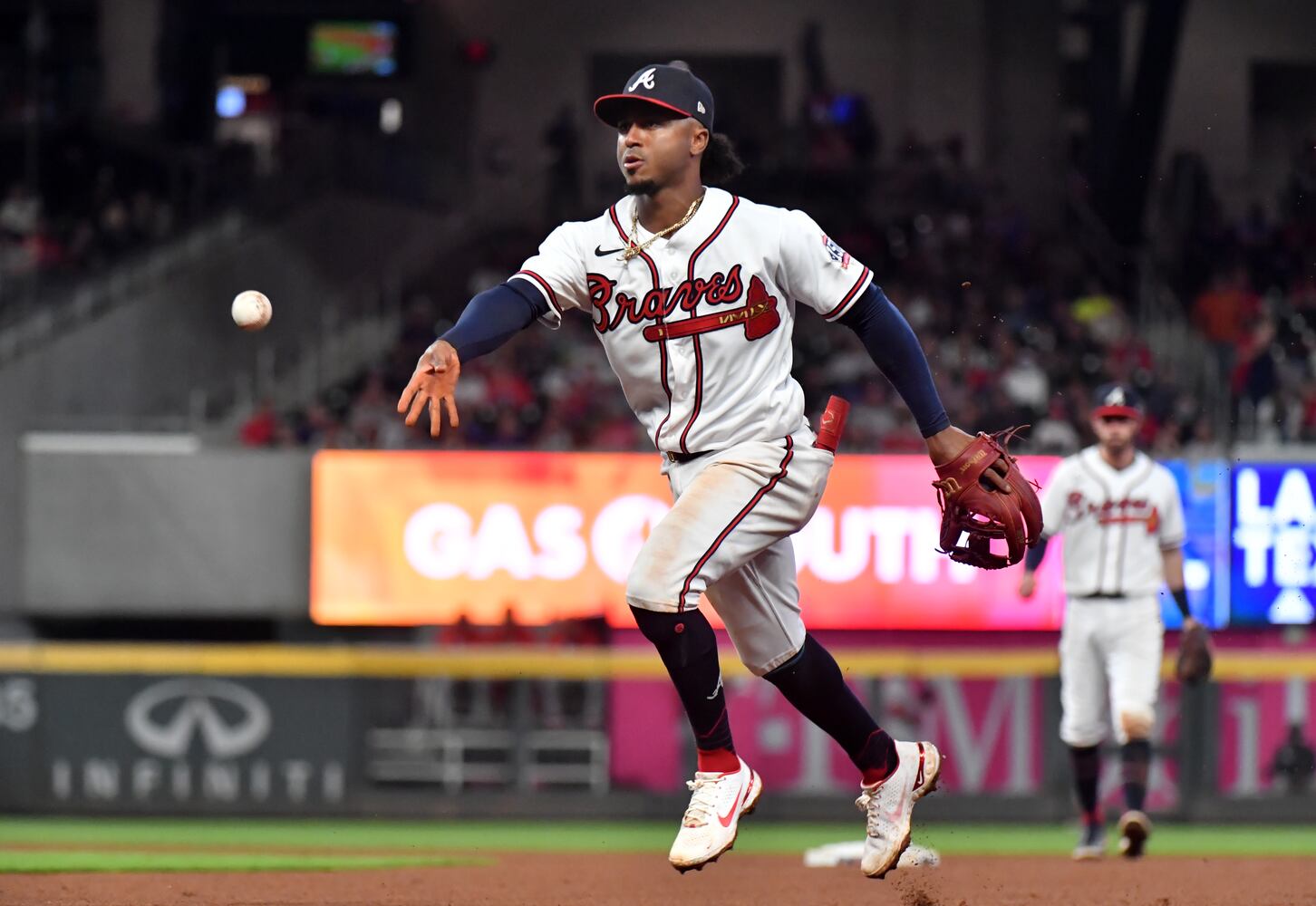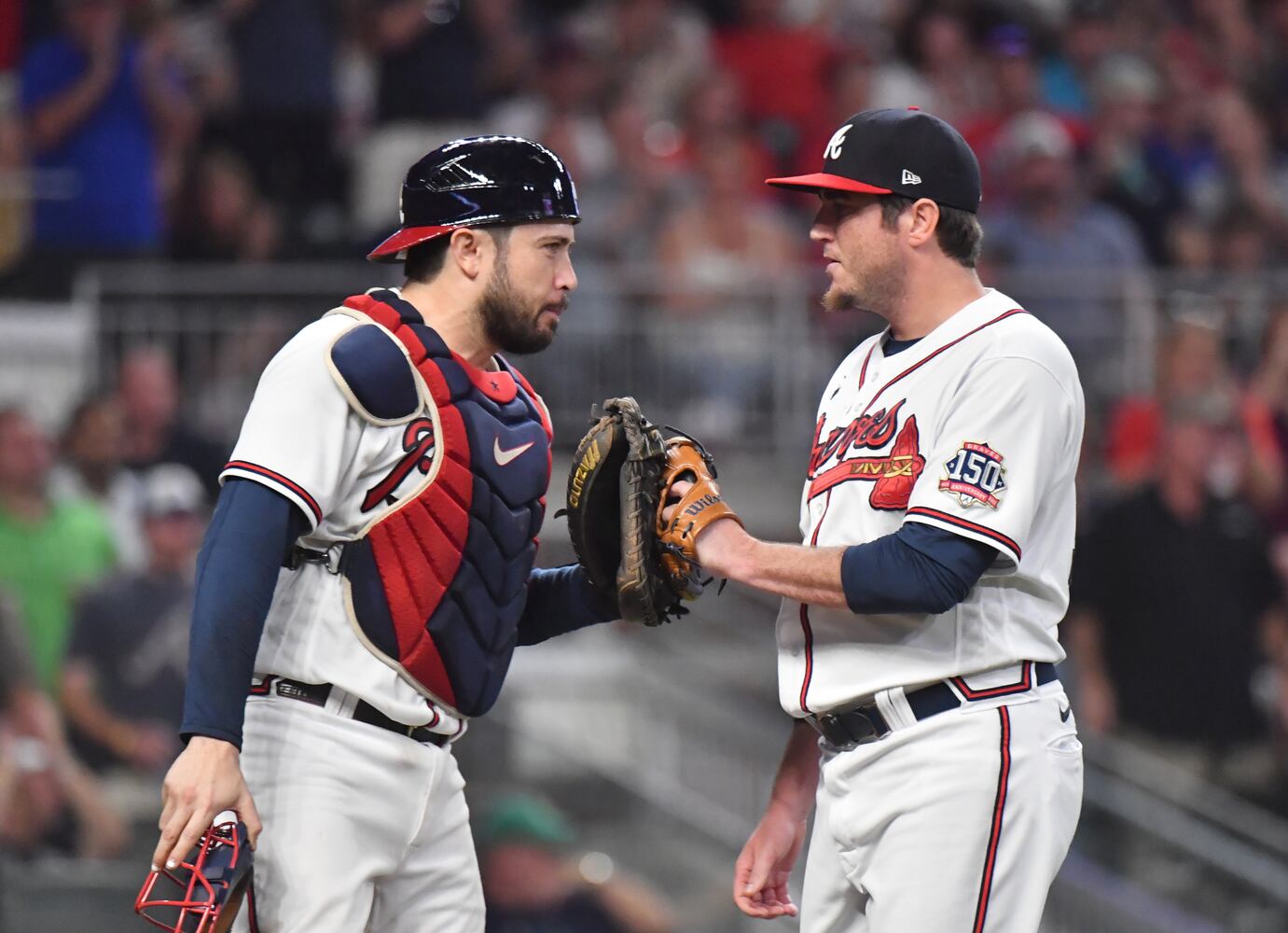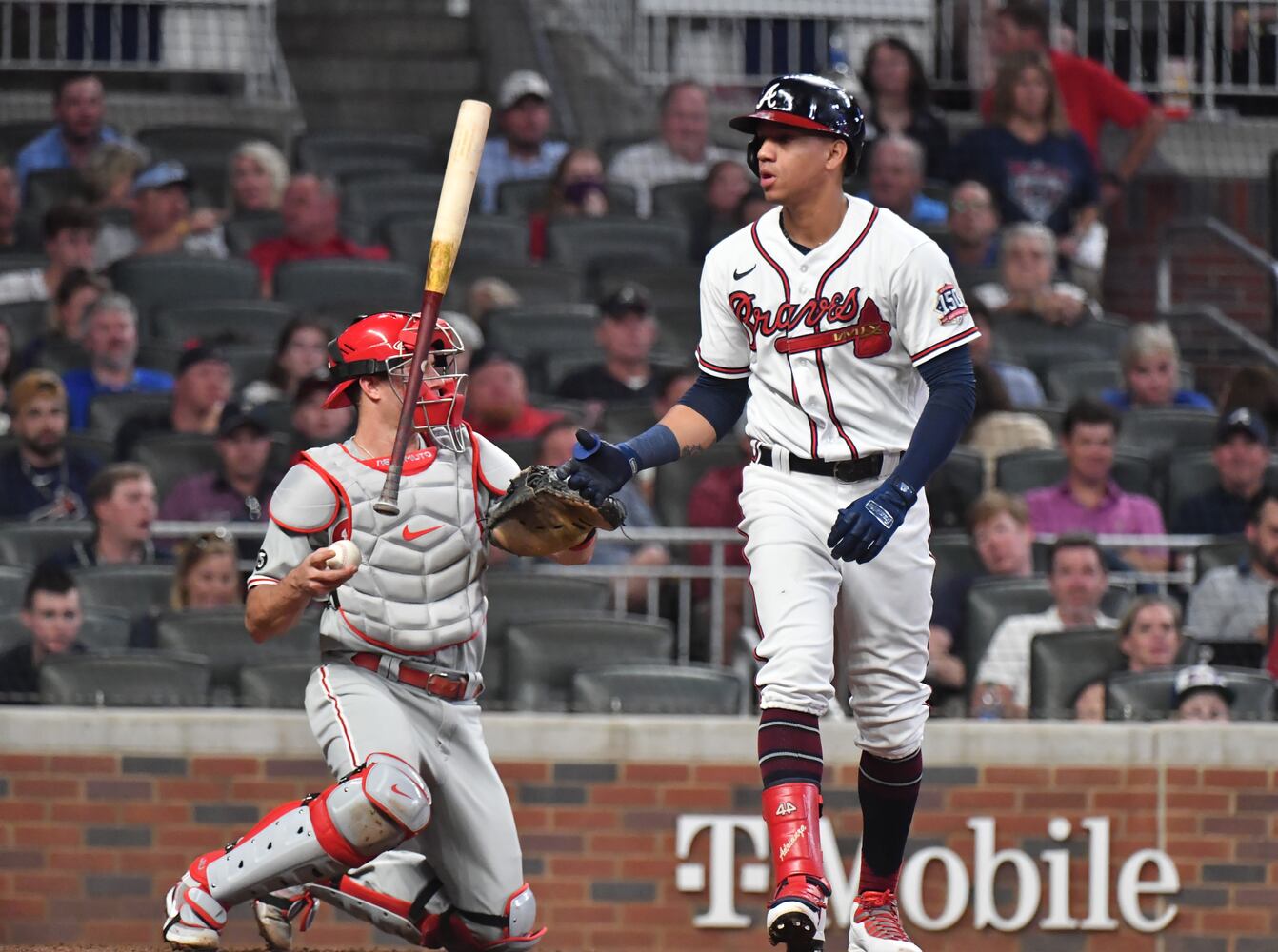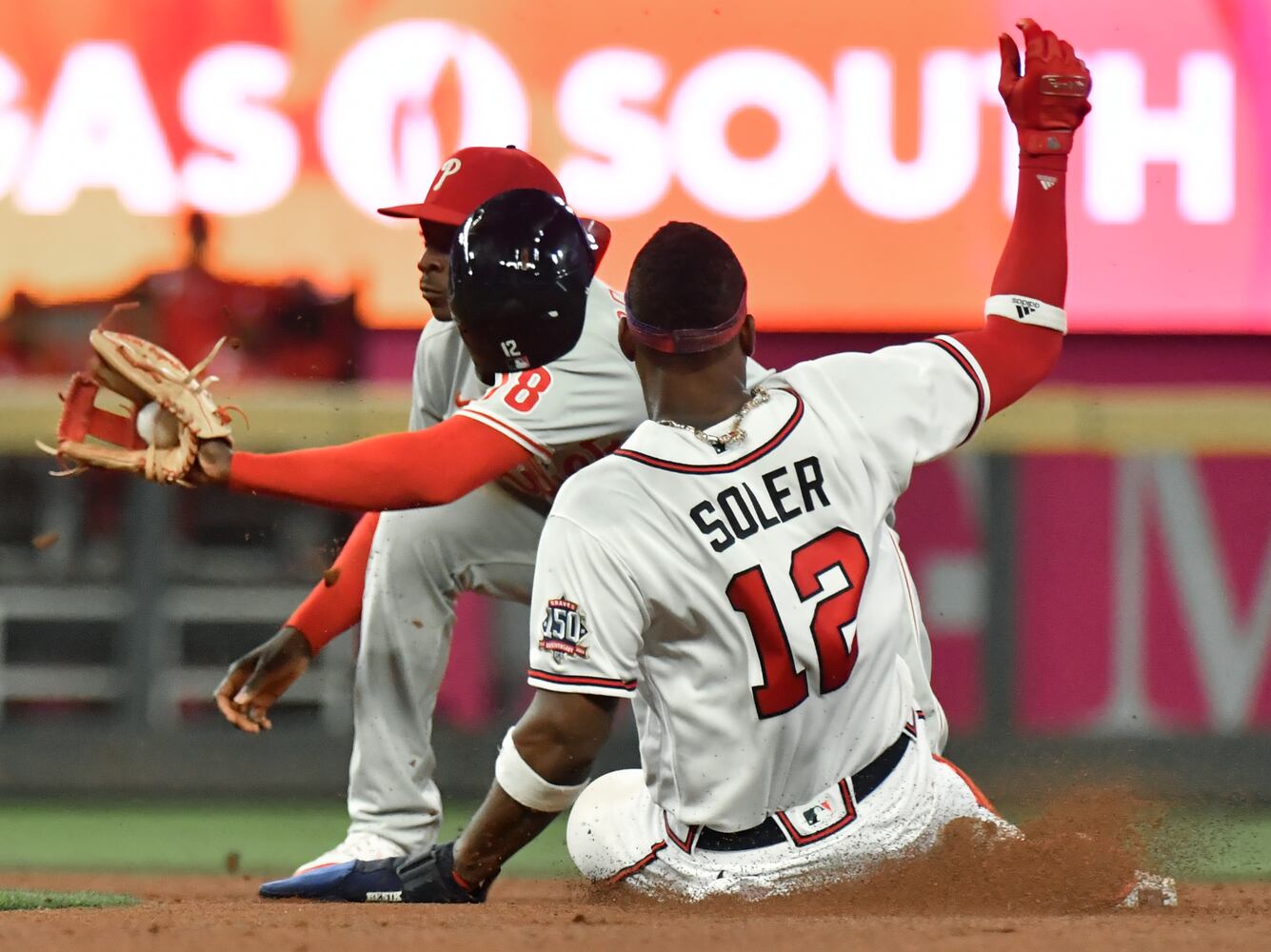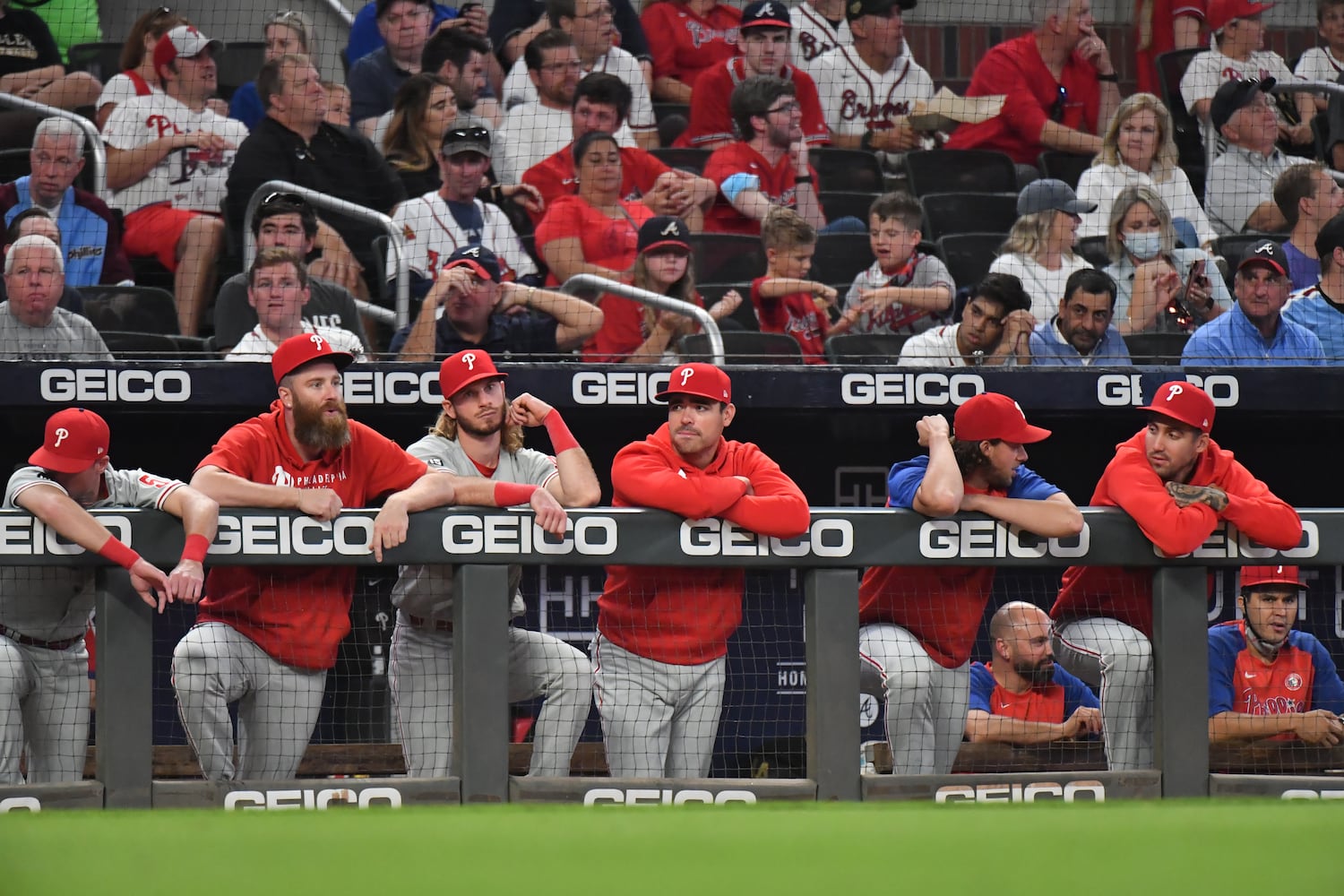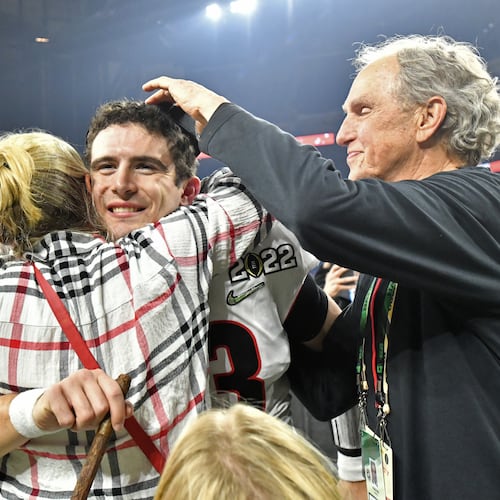Had you told manager Brian Snitker two-and-a-half months ago as they were carting Ronald Acuna off the field in Miami that the Braves would be playing a mammoth and meaningful series here at season’s end, he would have dislocated both shoulders turning somersaults.
But now that his team made it here, now that the rest of the NL East respectfully stood back and waited while the Braves restocked and regained their bearings, it’s time for them to reach into the Philadelphia Phillies chest and rip out their collective, still-beating heart.
For a team that has claimed the last three division titles and made it look fairly easy, it’s time to nail down the fourth. No messing around, no feeding the Phillies false hopes. Just win like you’ve done it before.
Tuesday was good, if more traumatic than necessary start, the Braves winning 2-1 and building their division lead to 3 ½ games over a Philadelphia team down to its last five games and its last slender thread of hope. It was a tremulous win, with closer Will Smith wobbling at the end (no surprise) and an untimely outfield error (big surprise) making this a one-run nail-biter. But Smith did get a strikeout of Freddy Galvis for the third out with runners on first and third to once more escape from the burning building he had help set on fire.
Yes, shaky at the back end. But rock solid at the front. Given the job of delivering the message of doom to the Phillies was a starter hand-picked for the task. Charlie Morton, salt of the earth that he is, loves him some high-tension games. The Braves signed him as a noted big-game hunter, bringing experience in 10 postseason series – including two World Series – with a 7-3 record and a 3.38 playoff ERA. Best part, at the age of 37, his fastball still sizzles and his curve is a night-long game of 3-card monte that Philadelphia’s Bryce Harper is still trying to solve. Morton undressed the Phillies star with that pitch.
Credit: Hyosub Shin/hshin@ajc.com
Credit: Hyosub Shin/hshin@ajc.com
“Exactly why we hired him. The moment doesn’t get too big, I know that,” Snitker said of his starter.
“It sure feels good knowing you got a guy like Charlie Morton out there on the hill for you,” he added.
Giving up two singles with his first three pitches, Morton then went seven innings yielding just one more skinny hit. Along the way he struck out 10 and kept the Braves viable until they could get the slightest bit of traction against Philly starter Zack Wheeler.
Where Philadelphia could make nothing of the two hits off Morton to start the game, the Braves cashed in Travis d’Arnaud’s double and Dansby Swanson’s single to start the third. It was Jorge Soler’s single driving in the Braves only two runs.
Soler power is one of the many alternate energy sources the Braves tapped into at the trade deadline. This time the simple jolt of a single was all that was required, as a team that’s second in the National League in home runs made do with four hits on the night, none of them close to leaving the park. This is the time of year when games must be also won with a series of small deeds.
Winning the opener of this three-game series had the feel of decisiveness to it, even if math doesn’t exactly support that conclusion.
Snitker knew the import. “The first win of a big series like this, getting that first game, I found is big,” he said. “Especially against a guy like Zack Wheeler, good God, that’s one of the best arms in the game. We got one big hit and it held up.”
Morton could feel it, too, that this was one of those moments in which he specializes. “You see a lot more fist pumps and yelling and excitement,” he said.
For a series of great magnitude, the crowd announced at 29,238 lacked postseason-style buzz. Kirby Smart would not be pleased. But the volume is bound to get turned up each time the magic number dwindles.
For the more recently minted Braves teams, the final week of the season is supposed to be a working vacation. It’s when they’ve already earned that asterisk next to their name in the standings indicating a playoff clinch and need only play out their obligation without irking a major muscle group. A relaxed time of self-congratulation and lineups more tailored to spring.
That was the case in both full division-winning seasons – in 2018 through 155 games, the Braves were up 8.5, the next season at the same point they had a 9.5-game bulge. They could pretty much spend the last homestand catching up on their needlepoint.
This season has forced upon the Braves a more difficult path. But now it’s time to get to the inevitable conclusion with as little added angst as possible.
About the Author
The Latest
Featured
